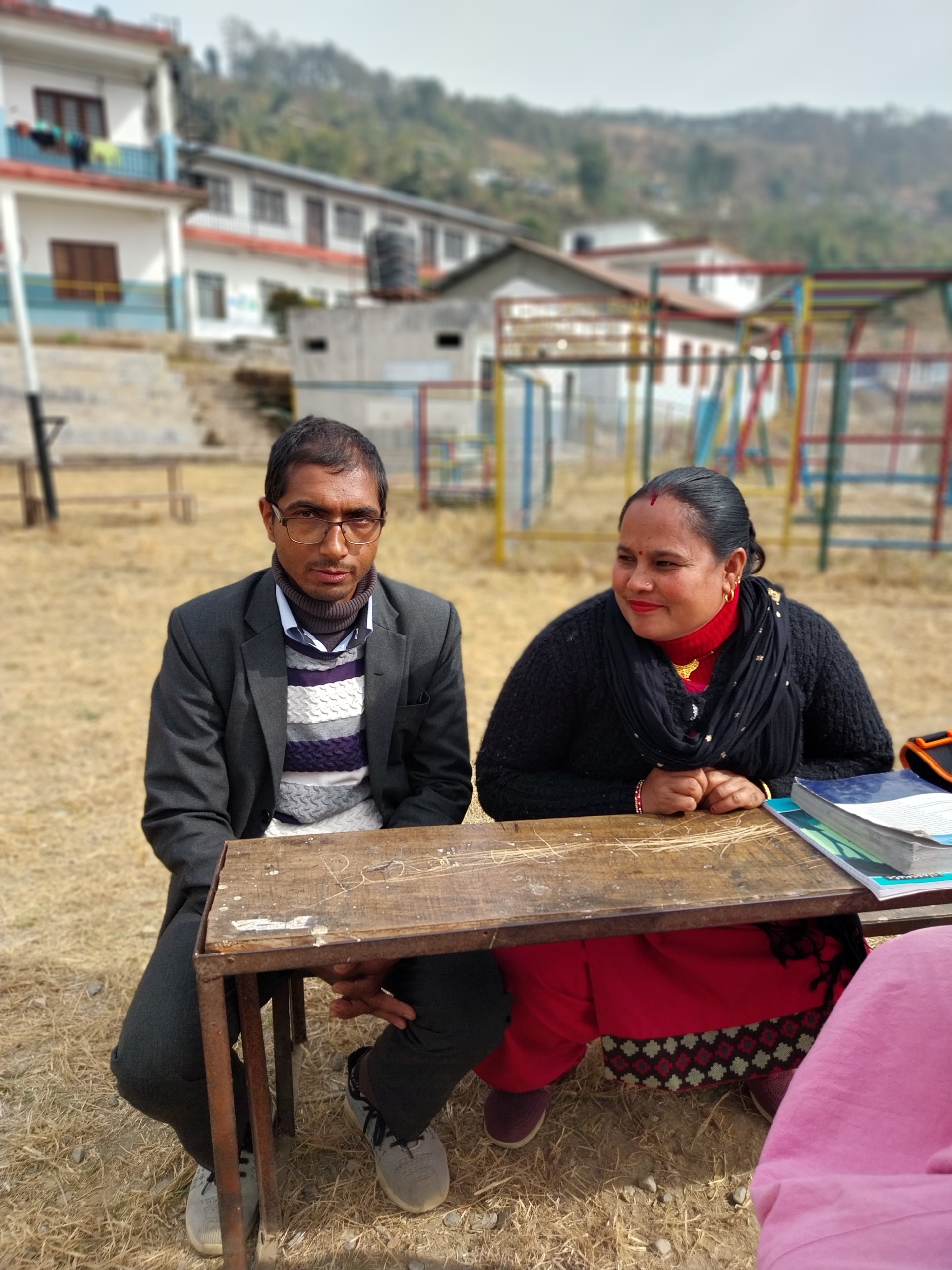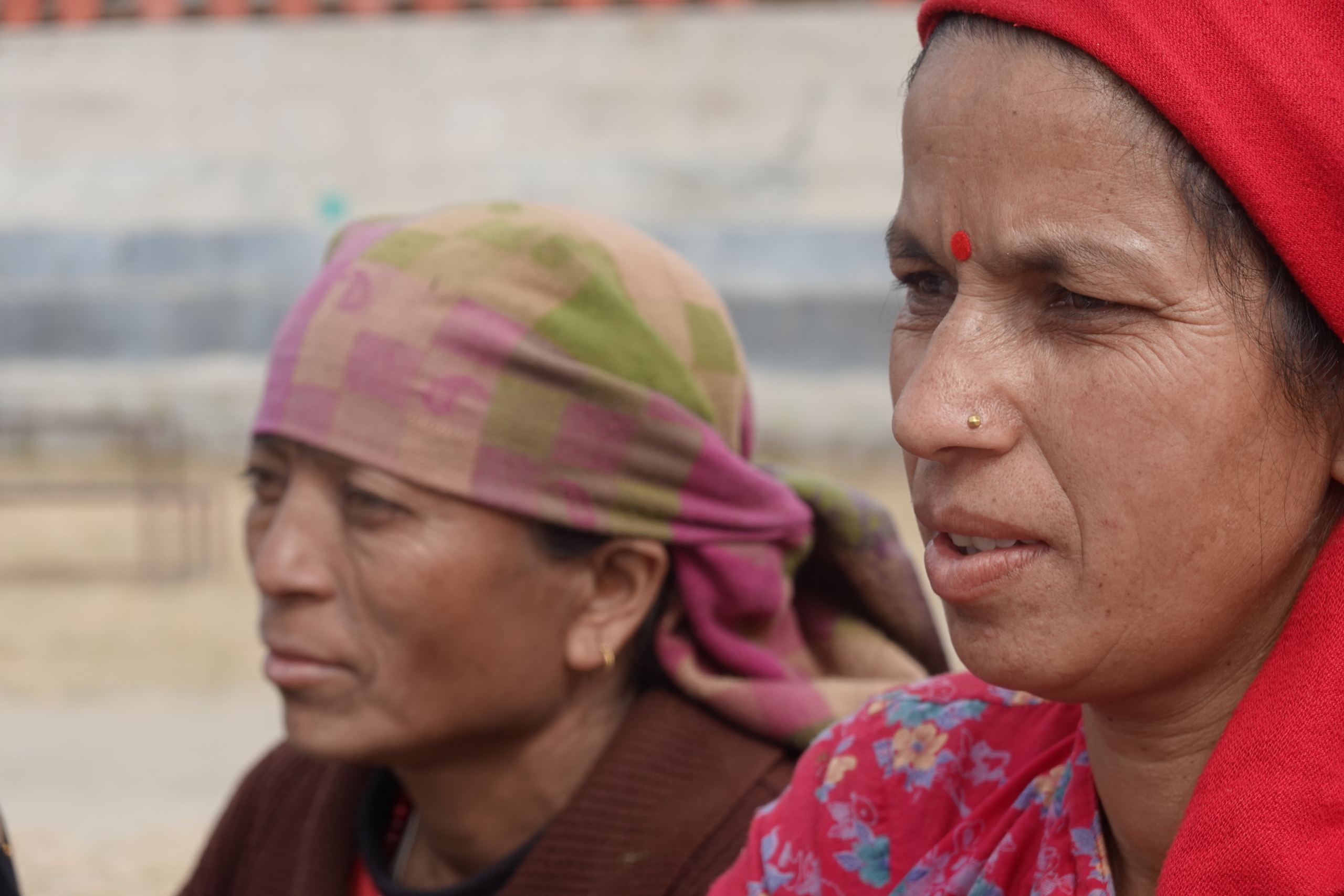
Lærer Jyoti Paudel viser skolehaven frem. Foto af Sonja Salminen.
Project visit in Nepal
In February Camilla and Sonja went for a supervision visit in Nepal, to our partner CHILDREN-Nepal. On of the main goals was to visit some of the schools that are part of the target group of our project Food for thought – better nutrition for children and youth.
Motivated teachers and students
At the Sirjana Community Secondary School (Annapurnu Rural Municipality, Kaski District) we met the teachers who are responsible for the project activities at the school. They were very positive and motivated about the project, and showed us the small kitchen gardens of the school, which they have initiated with the students.
One teacher, Govinda Bhandari, told us about his experience with the project: "This project is very spendable for us. In our own times at school, we worked in the fields and that kept busy both our minds and bodies. Nowadays students are lazy, so when we started with this agricultural project they became more active. The students can gain money by selling the products from the gardens, and they are the ones buying materials for the kitchen gardens, which provides them with new knowledge, that they will be able to use in the future. They learn how to be independent, which is very important for us."

Foto af Camilla Sternberg.
We also talked to the students, who told us that they were members of the school's Eco-club, which is the entity that arranges and carries out the activities related to the school gardens. So far, the students have planted different types of vegetables, and learned how to make organic fertilizers. A boy said that the students had taken part actively - both in the school gardens and at home, where some of the students had planted vegetables." It is just healthier to eat home grown vegetables",he said.
Parents learn new techniques
To mothers, who have their children enrolled in the school, also joined for a chat. One said hat she is a member of the school's management committee, and that she has two kids who are both students at the school. " I am really grateful for this project. The kids used to be lazy. but the project has made them much more active. They carry out all the work independently. They also know that it is better to eat fresh and home grown vegetables. Nepal is a poor country , and most of the poor people work in agriculture. Due to poverty, development is almost impossible."
The other mother told us that she has a daughter who goes to school there. She thinks that the school has some very good activities, and she hopes that they will keep being held. "Our daughters have learned so much here. We didn't know much before. I was used to use artificial fertilizer but the teachers from the school has taught us that it isn't good, so we no longer use it. Now we know how to make organic pesticides and fertilizers using herbs, cow dung, and jaggery (dried sugar cane juice). We would like to learn more, and we hope our children will get more practical skills and not only theoretical knowledge."

The project Food for thought – better nutrition for children and youth is supported by CISU and will run until the end of July 2024.
Read more about DIB’s work in Nepal here: https://www.dib.dk/projekter/nepal/
